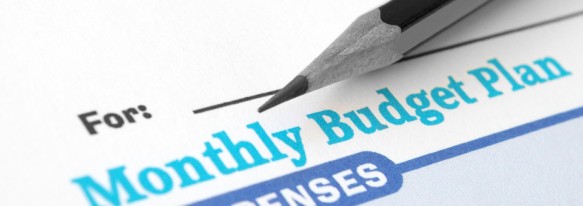


Staying On Budget
When it comes to your finances, one of the most problematic, and stressful, situations is when your finances get out of control. One of the best methods to avoid such financial pitfalls is to create a budget for yourself. However, as we all know, creating a budget can, in and of itself, be a difficult task, let alone the often more difficult task of sticking to that budget. But there do exist ways in which you can improve your chances of not only creating a sound budget plan, but also your chances of staying with the plan, which will, in the end, reduce stress in your life, and of course put you back on track to a secure financial future.
Tips
Tip #1: Focus on your Savings
Once you have created a budget for yourself, you should have a pretty good sense of how much money is coming in and how much is going out. However, you may still experience problems with staying on track with your new budget. Luckily, there are a few small tips that you can use to help you maintain a long-term commitment to your budget plan. One tip is to focus on, according to your budget, how much money per month you are able to put into your savings. By doing so, you will be doing yourself a great favor down the road by creating a financial buffer if things get problematic in the future.
 Tip #2: Eliminate Bad Spending Habits
Tip #2: Eliminate Bad Spending Habits
We all have our vices, be it cigarettes, alcohol, or shoes. Although we may often enjoy such indulgences, these habits can get quite expensive in the long run. Thus, one quick way to enhance the effectiveness of your budget is to eliminate the bad spending habits. If you find yourself buying too much, for example, alcohol, tobacco, or shoes, try as hard as you can to stop purchasing these expensive products, or at least try to substantially cut down on such buying habits. Furthermore, if for instance you reduce your spending on cigarettes and alcohol, you will notice that you have lots of extra cash to put to paying down your bills. And as a spin-off, you will also notice that your health is better.
Tip #3: Pay Down Debt
Easier said than done, many would say, especially if you have a couple of credit card accounts that seem like daunting tasks to pay off. However, such a task can be made easier through using baby-step approach. Pick the one credit card that has the largest interest rate on it, and start paying that down, month by month. Meanwhile, on all other cards pay just the minimum monthly payment. After that first big account is paid off, pick the card with the next greatest interest rate, and repeat the process of only paying the minimum monthly payment on your remaining cards.
Tip #4: Keep Your Receipts
Maintaining a good budget plan means keeping close tabs on what you’re spending your money on. But as you settle in to your plan, oftentimes you may find yourself sliding a bit on monitoring every single spending transaction. This is normal. However, if you are vigilant in sticking to your monitoring, you will likely keep sticking to your overall budget plan. So, as a tip, try to keep the receipts from all your purchases, keeping track on where you spend money. Once you can see on paper how much cash you’ve gone through, you will likely stop overspending.

Tip #5: Be Flexible
From time to time life throws curve balls, and if you’re unprepared financially, these set-backs can be extra difficult. Thus, when you are preparing your budget, be sure to plan for such emergencies and hardships by making room in the budget for money that can be used specifically for emergency or unexpected expenses. Also, try not to view your budget plan as set in stone. Be flexible. If you go over your budget, don’t get too frustrated. It happens. If you are too rigid in your budget, you may end up finding it tough to re-focus once you’ve gone off the rails for a bit.
Conclusion
Overall, by following such strategies, sticking to a budget plan will get easier and more rewarding, making your daily life much less stressful while giving you confidence in your ability to manage your finances. Also, one day you may find yourself in need of an item which is a big ticket purchase, realizing that you do not need to borrow money to pay for it because all that time carefully budgeting your money has given you the freedom of debt-free spending! But don’t stop there. Make sure to keep up the good work with regular updates to your budget plan, adjusting expenses and spending as you see fit. After all, it’s your money, and what you spend it on should be very important to you.












